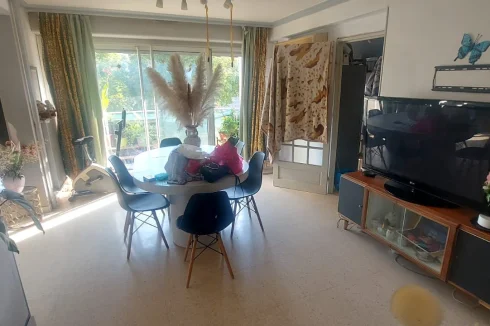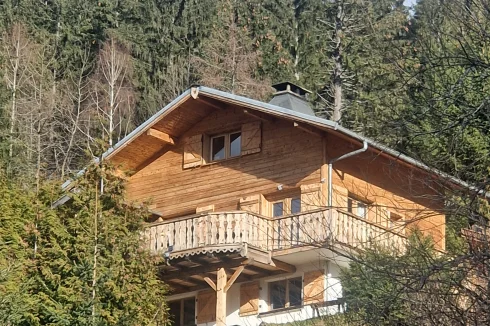French Estate Agent Fees
Friday 07 February 2020
Estate agent fees are falling in France, the result of increased competition and a change in the law.
The agent fees in France for selling a property have historically been one of the highest in Europe, averaging around 5% of the purchase price, within a range 3% to 10%.
Rates at the higher end of that scale may have been more palatable in an era of low house prices, but with the increase in prices over the past 20 years and the emergence of a low-cost on-line era, they look difficult to justify.
The commission received by agents, unlike the fees of the notaire, are not regulated, so they are free to charge what the market will bear.
The only precept has been that the commission is strictly payable only upon the sale of the property.
The law does not stipulate who pays the commission - buyer or seller - and as it has traditionally been the buyer who has picked up the bill it does add a significant additional cost to the property purchase, on top of the notaire fees and stamp duty.
Property adverts have been frequently unclear on who is responsible for the fees and their amount, with laconic statements such as “frais d'agence inclus”.
However, since a change in the law in 2014 that has become operational in the last two years, where the commission is to be paid by the buyer agents are now obliged to make clear in the property advert the level of the commission payable.
Only where the fee is the responsibility of the seller can the property advert remain silent on this point, although they will often state 'honoraires à la charge de vendeur'. In such circumstances, the commission cannot be included in the advertised sale price, although many adverts have yet to comply with this requirement.
Interestingly, as a result of this change in the law, more often than not, it is now the seller who pays the fee.
Nevertheless, as we state in a broader review of this topic, contained in our Guide to Estate Agents in France, it is sometimes in the buyer's interest to accept responsibility for the fee, as it does then reduce the notaire fees and taxes that are payable.
Even where in a sale it is the buyer who is to pay the commission, that does not prevent the buyer negotiating with the agent on the amount payable, although a more common and effective strategy is to negotiate on the purchase price, thereby keeping the agent on-side during the broader negotiations. The distinction may seem an artificial one, as the net result in both cases is to reduce the purchase price, but the agent is often a useful ally against an intransigent seller.
Low-Cost Agents
The change in the law has of course been accompanied by the internet revolution, providing greater visibility and choice to the consumer; sellers no longer need an estate agent to advertise their property, which they can easily accomplish themselves on-line.
The change has spawned a significant growth in number of on-line based neo-estate agencies in France, such as IAD, New Immo Group, Digit RE Group (Optimhome, CapiFrance et Refleximmo), Propriétées-privées.com, and Efficity.
These agents operate as a franchise (réseaux de mandataires), without a network of offices or large numbers of salaried staff, relying on driving their business on-line, and using a network of self-employed ‘mandataires immobilier’ as their sales force. They, in turn, run their business from their own home, meeting buyers and sellers at the property, not in a local office.
Although entry to the estate agents' profession is regulated, provided the mandataire immobilier operates under the aegis of estate agent holding a ‘carte professionelle’ it is perfectly legal. There is no limit to the number of self-employed sales agents who may be engaged by a suitably accredited estate agent.
Estate agents in the classic model have always used self-employed 'agents commerciaux', but what is new is that the neo-agents are aggressively low-cost and on-line.
Inevitably they are having a dramatic impact on the whole sector, forcing the traditional agencies to review their prices and their practices.
Many have now been obliged to lower their rates, be more active on-line, and to improve the quality of their staff and the services they offer to clients.
Agent prices still vary widely, starting from 1%, or a fixed sum of a few thousand euros from some neo-agents, although most are around 4% to 5% of the selling price. In other cases the commission varies according to the sale price of the property, with it being lower the higher the sale value.
Within rural areas, the fall in agent fees has been slower, due to more limited presence of the neo-agents and the costs involved in selling such properties, often involving substantial travel and many visits.
Although the new entrants are making the market more competitive, with the agencies operating on small margins and using field
workers with often minimal training and experience, the quality of the service they offer generally leaves a lot to be desired, but that is also the case with many traditional agents.
The sustainability of low rates of commission of some of these agencies is also questionable.
The weaknesses in this new brand of agents are to some extent being compensated by the growth of information on-line about the market and the law.
So sellers can now go on-line to see the sale price of other properties sold in the area in recent years, there is now a significant number of statutory surveys carried out to the property, and a substantial amount of information about law and best practice is available on-line.
However, the value of these alternative sources should not be overstated. Information on market prices in rural areas in France is still scarce and often unreliable, with suitable comparisons particularly difficult to find; nothing beats the knowledge of the market that is offered by a qualified, experienced, local estate agent.
Similarly, the statutory surveys fall well short of a full building survey, and both sellers and buyers need to be wary of the accuracy of a great deal of information on-line.
Although accredited estate agents can process the sale and purchase contract, this is not a practice we recommend, an issue we consider in our guide below.
Despite the availability of a substantial number of on-line portals where sellers can advertise and sell their property without going through an estate agent, over two-thirds of sales in France continue be made by estate agents, perhaps thereby demonstrating that the intervention of a professional seller remains a key factor in obtaining a successful sale.
Thank you for showing an interest in our News section.
Our News section is no longer being published although our catalogue of articles remains in place.
If you found our News useful, please have a look at France Insider, our subscription based News service with in-depth analysis, or our authoritative Guides to France.
If you require advice and assistance with the purchase of French property and moving to France, then take a look at the France Insider Property Clinic.





